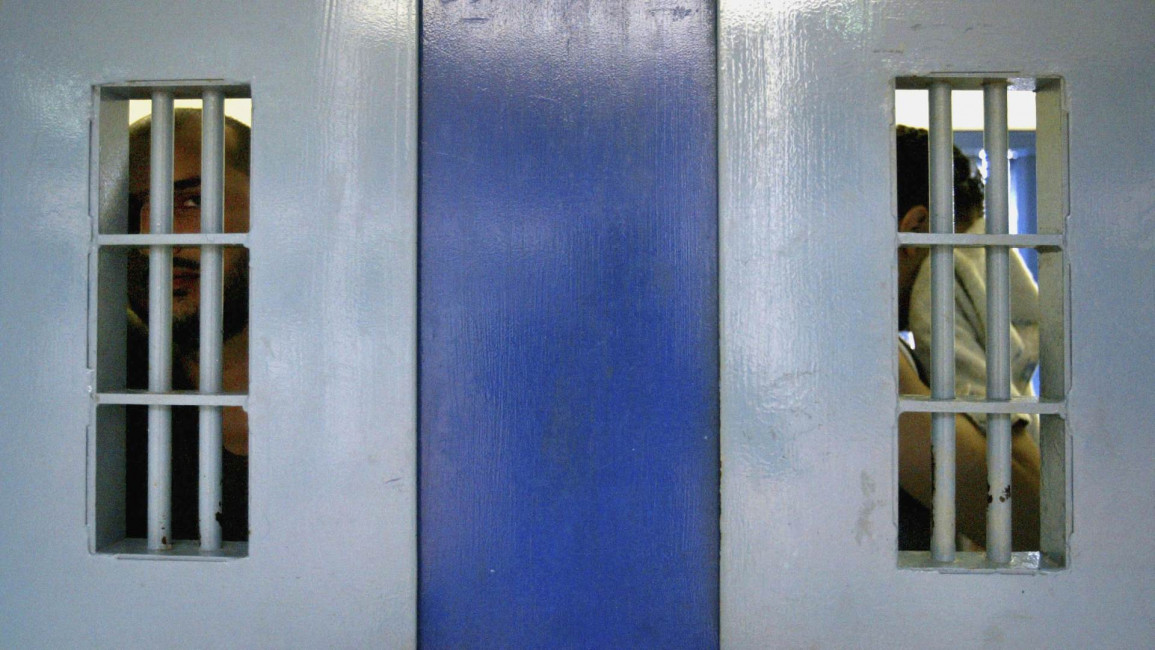Outcry after Israeli minister withholds coronavirus vaccine from Palestinian prisoners
Palestinian detainees are at high risk of the coronavirus due to overcrowding and poor conditions in Israeli prisons. Last November Israeli authorities closed the Gilboa Prison after 73 Palestinian inmates became infected.
An estimated 140 Palestinian prisoners in Israel have been infected with coronavirus out of a total Palestinian prisoner population of approximately 4,400.
On Saturday, Qadri Abu Bakr, the Director of the Palestinian Authority’s Prisoners and Ex-Prisoners Commission, announced that Palestinian prisoners would be vaccinated against Covid-19 soon.
However, his statement was contradicted later by Ohana, whose office issued a statement saying that only prison staff would be vaccinated and that Palestinian prisoners would not receive the vaccination "until further notice".
Twitter Post
|
The statement said that the prisoners would receive the vaccination "in line with vaccination progress among the general population", and ordered that no Palestinian prisoner should receive the vaccination "without approval".
Israel began a massive coronavirus vaccination drive last week. So far 250,000 people have received injections of the Pfizer-Biontech vaccine, with priority being given to high-risk groups such as the over-60s and medical staff.
Ohana’s statement also suggests that prison staff will be given priority but not Palestinian prisoners, despite the elevated risk of infection they face.
The Palestinian Prisoners’ Club, a non-governmental campaign group, slammed Ohana’s decision on Sunday, calling it "racist" and saying that it "was the latest in a long line of Israeli violations of the right of prisoners to medical treatment".
"While humanity is facing the coronavirus pandemic, Israel is pursuing its racist policies and it has turned the pandemic into a tool of oppression and abuse against Palestinian prisoners," the statement said.
The Palestinian Prisoners’ Club called for a "neutral medical committee", with participation from the International Committee of the Red Cross (ICRC) to supervise the vaccination of prisoners.
The Israeli branch of the NGO Physicians for Human Rights also condemned Ohana’s decision.
"Minister Ohana’s politically motivated directive indicates once again why the responsibility for prisoner health should be moved from the Public Security Ministry and the Israel Prisons Service to a body whose first priority is health," a statement from Physicians for Human Rights Israel said.
"The minister’s directive contradicts the vaccination guidelines that the Health Ministry issued.
"We should be making sure that prisoners are given high priority for vaccinations in line with recommendations by health experts involved in the matter, especially in light of worldwide data showing that the risk of infection among inmates is higher than that of the outside population."
Follow us on Facebook, Twitter and Instagram to stay connected


![Gaza hospital [Anadolu Agency/Getty] Gaza hospital [Anadolu Agency/Getty]](/sites/default/files/styles/image_330x185/public/media/images/3C189854-8653-4F10-A826-AB9366927CC7.jpg?h=d1cb525d&itok=UBJlatEz)
